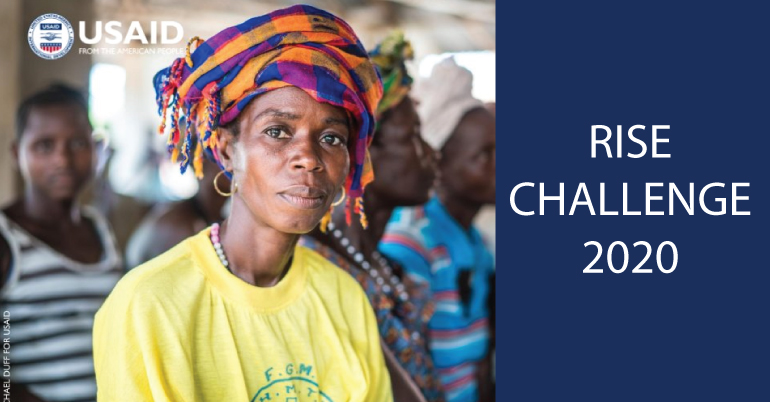USAID invites eligible applicants to respond to RISE: A Challenge to Address Gender-Based Violence in the Environment 2020.
The Challenge aims to identify and fund the innovative application of promising or proven interventions that prevent and respond to gender-based violence across programs that address the access, use, control, and management of the natural resources.
Looking for fully-funded opportunities, install the Youth Opportunities Android or iOS App here.
Responding to GBV can provide opportunities for both enhanced environmental action and women’s empowerment, but tackling one issue without addressing the other is unlikely to succeed. USAID’s RISE Challenge aims to identify and implement interventions to reduce GBV in environmental programming.
This challenge aims to fund organizations to innovatively adapt and implement promising or proven practices that have been used to effectively prevent and respond to GBV in other sectors to environmental programming. The challenge will draw insights from other development and humanitarian sectors that have proven or promising practices to address GBV. It incentivizes partnerships between environmental organizations, local communities, indigenous peoples organizations, and gender and GBV experts who can help bridge knowledge gaps and work to build an evidence base of effective GBV interventions.
They also aim to celebrate and spur a broad range of interventions that are sustainable and integrable into USAID and partners’ environmental programming and investments.
Gender-based violence (GBV) is estimated to affect more than one in three women worldwide. This widespread problem takes a variety of forms, including sexual, psychological, community, economic, institutional, and intimate partner violence, and in turn affects nearly every aspect of a person’s life, including health, education, and economic and political opportunities. At the same time, environmental degradation, loss of ecosystem benefits, and unsustainable resource use are creating complex crises worldwide. As billions of people rely on these natural resources and ecosystems to sustain themselves, the potential human impacts are dire, with disproportionate effects on women and girls.
GBV and environmental issues are interlinked, and so their interactions are complex, diverse, and multi-layered. In some contexts, they form feedback loops where gender-based attacks, harassment, and discrimination worsens the loss of biodiversity and ecosystem resources, and this environmental deterioration triggers new, more damaging forms of violence. In other contexts, preventing and responding to GBV unlocks opportunities for enhanced environmental action, as well as for women’s and community empowerment.
Location:
OnlineBenefits
- For winners of this challenge, USAID will feature their interventions, facilitate access to funding and networking opportunities, and provide technical assistance to support the proposed activity in achieving measurable results and impact.
- USAID will award up to three Fixed Amount Awards (FAA) between $100,000 and $300,000, subject to the availability of funding. Each FAA will be funded based on milestones and an implementation plan that are mutually agreed upon. Grant-funded activities must be completed within one to two years.
Eligibilities
- RISE is open to all organizations regardless of type (e.g. NGO; for profit; not-for-profit; national, regional, community and indigenous peoples organizations; universities; foundations; faith-based organizations; women-owned/women-led enterprises).
- All organizations regardless of size are eligible to apply.
- Applicants must demonstrate a partnership model that leverages the capacity, expertise, and existing relationships across relevant environmental sector organizations, gender and GBV organizations, indigenous peoples organizations, relevant experts, and local communities for the geography and sector of interest. Partnerships with research, academic, or evaluation organizations with the capacity to support evidence collection are also highly encouraged. The RISE Challenge requires supporting documentation to verify partnerships.
- All applicants must use the funds to implement interventions in geographies where USAID is currently operational. Applicants must either already have a presence in that country or must have a local partner.
- All applicants need to describe a clear and actionable plan for Monitoring, Evaluation, and Learning that articulates how the applicant will test hypotheses, generate evidence, and use learning to adapt programming, which will feed into the evidence base that USAID is creating.
- Applicants should present interventions that address the objectives of the Program Statement.
- Applicants must submit their entries in English.
Application Process
Apply through the given link.
Application Deadline: August 5, 2020
Application ClosedOfficial link









